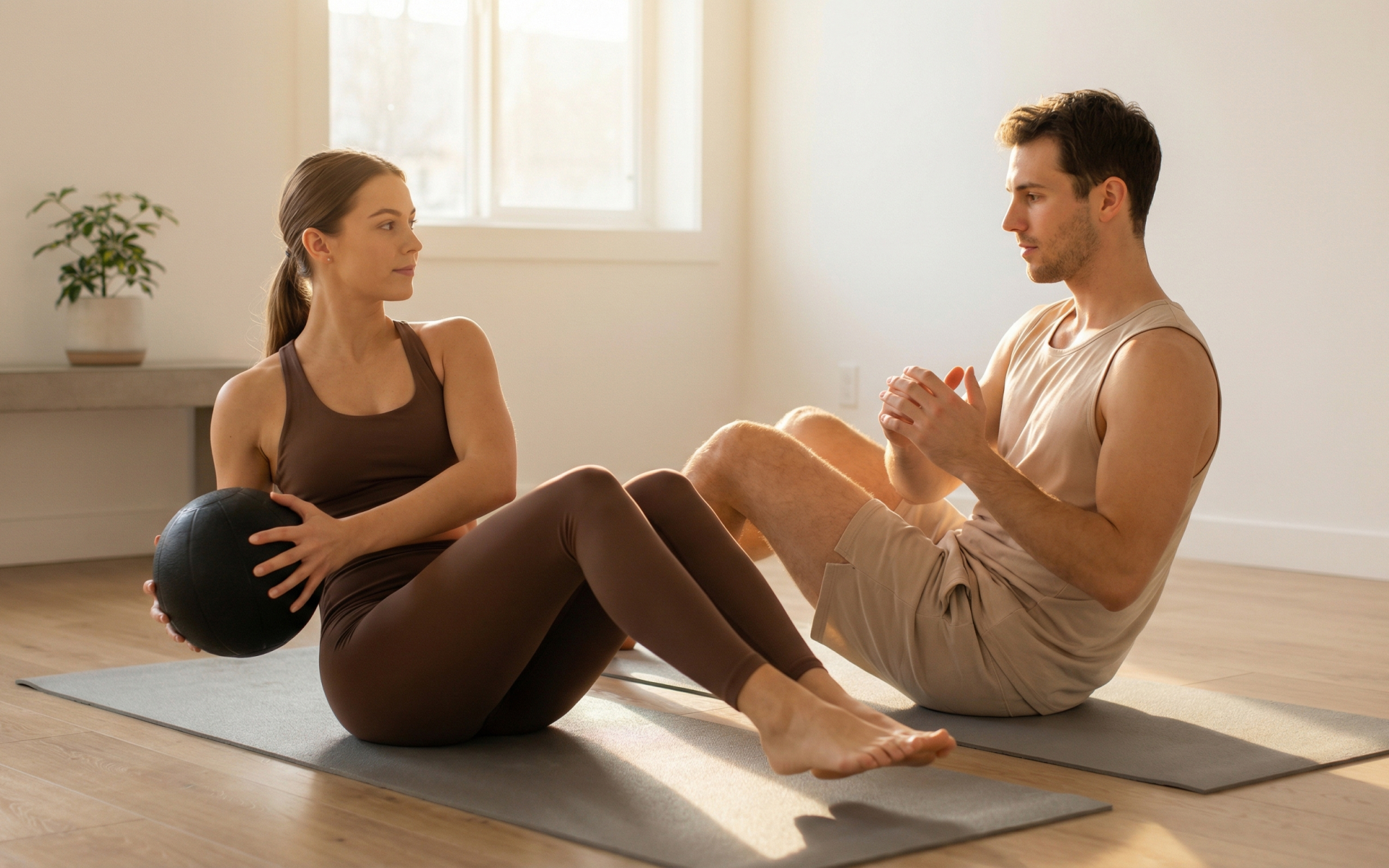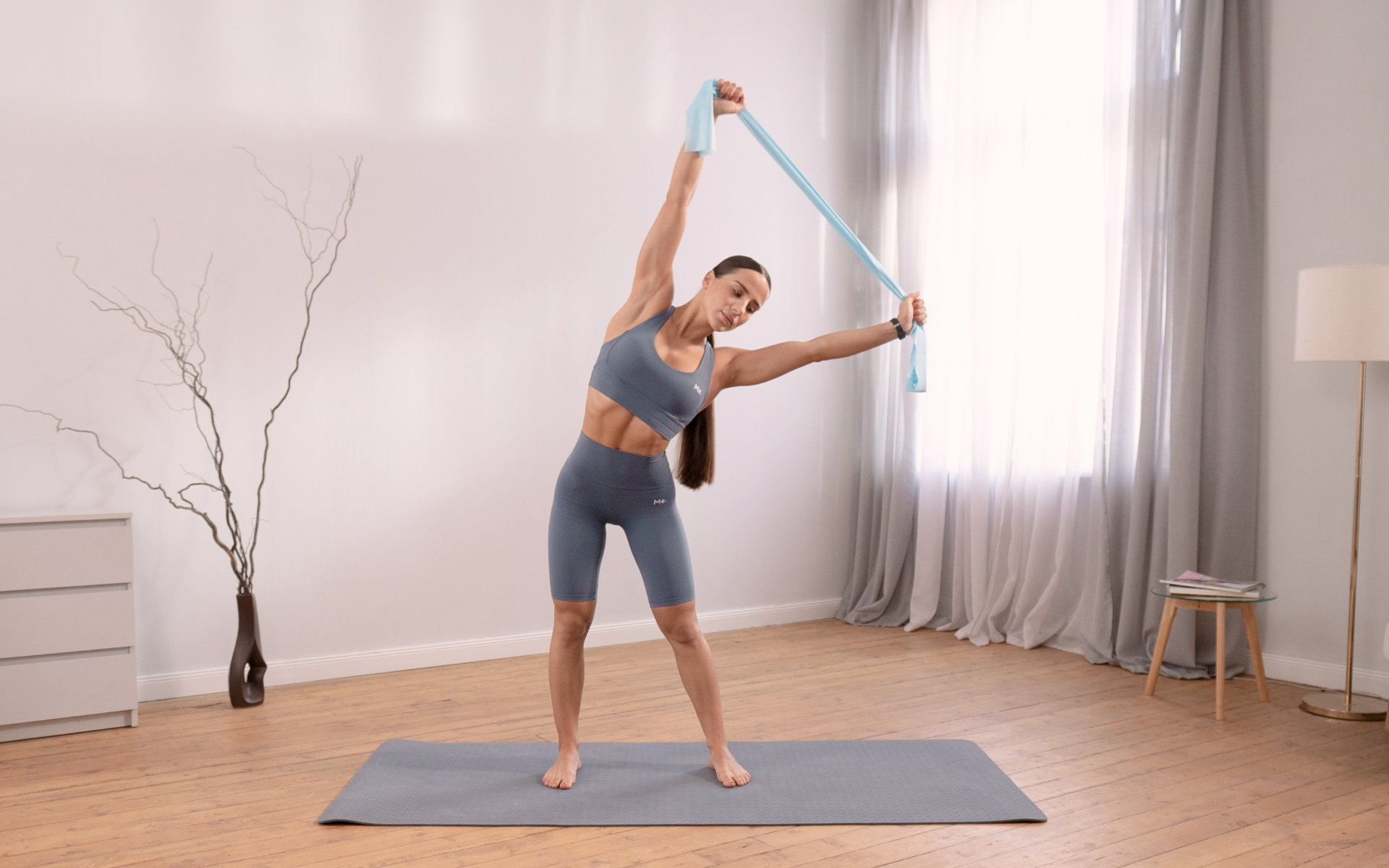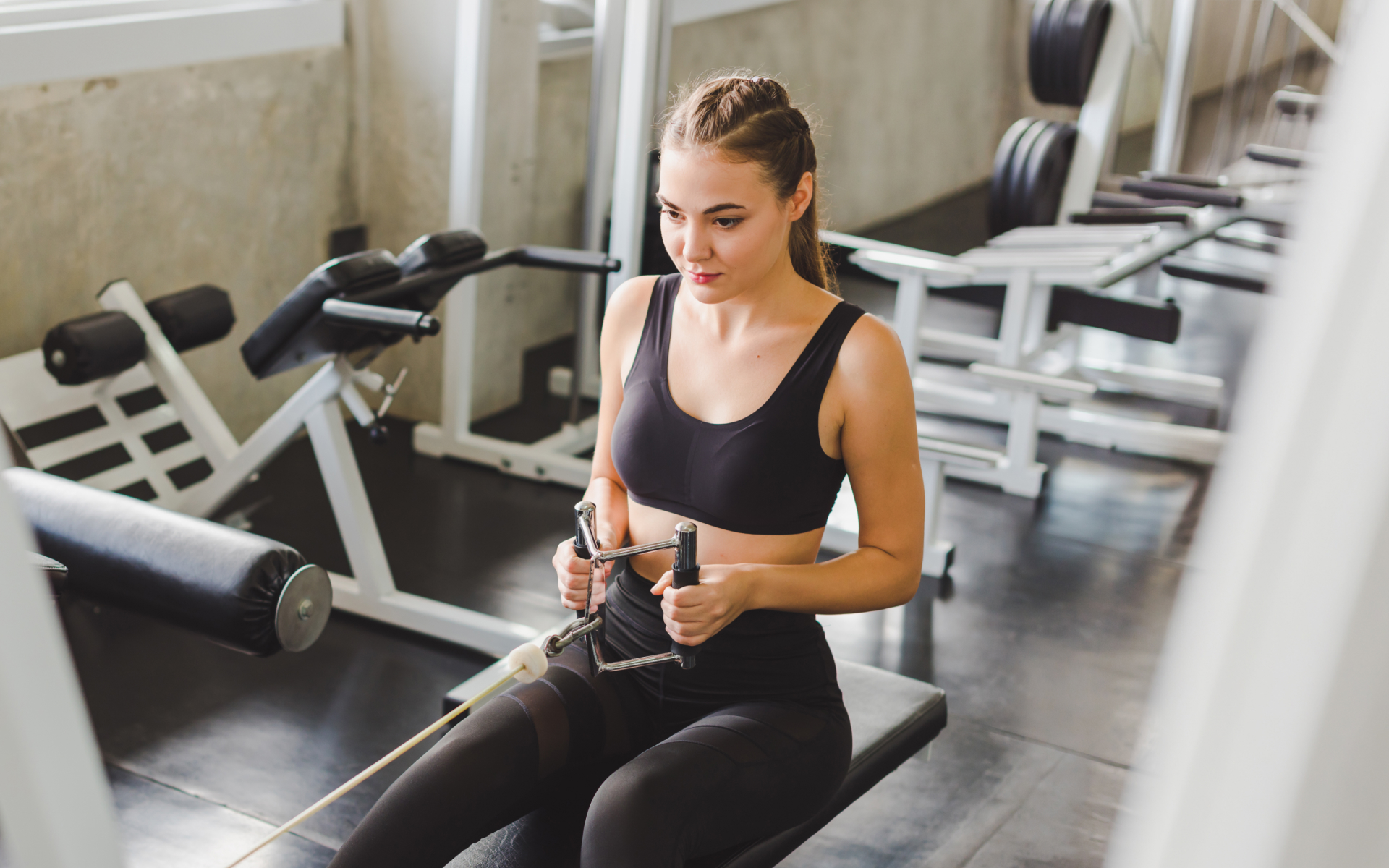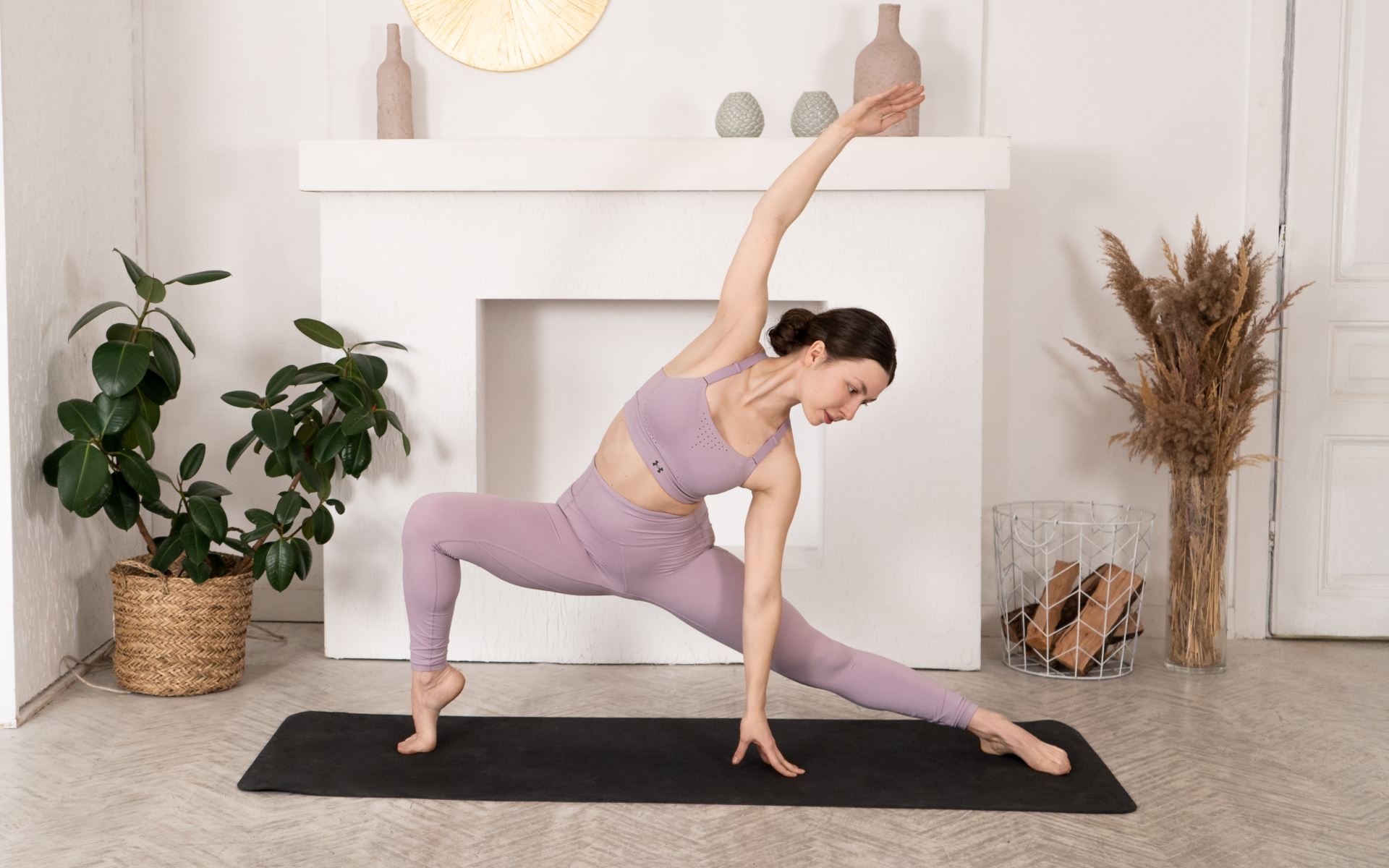Introduction: Revolutionize Your Fitness Routine with Hybrid Workouts
Why settle for one workout when you can enjoy the benefits of two in the same routine? Combining the power of strength training with the calorie burn of a good cardio session, hybrid workouts are the newest, trendiest routines on the block. In the fast-changing world of fitness, hybrid workouts have revolutionized the way we approach exercise, especially in the post-pandemic world (12).
Unlike traditional workout routines that often focus on a single discipline, hybrid workouts blend multiple fitness styles and create a comprehensive and dynamic regimen that caters to various fitness needs. By integrating forms such as calisthenics with weightlifting, HIIT, yoga, and cardiovascular training, hybrid workouts offer a balanced approach to achieving peak performance, and consequently, enhancing both physical and mental well-being.
Understanding Hybrid Workouts: A Blend of Strength, Agility, and Endurance
The best way to understand hybrid workouts is that they’re not just about achieving a sculpted physique – they’re designed to build functional strength, agility, and endurance (7). Such exercise plans hinge on combination moves, which work several major muscle groups while also boosting your heart rate. With this multidimensional approach, people are no longer bound by monotonous routines and myopic goals. Instead, workouts now have the potential to be engaging, effective, and well-rounded.
As we delve into the details of hybrid workouts, this article explores the core principles behind this innovative fitness trend, the scientific benefits it offers, and practical steps to create your personalized hybrid workout program. Whether you’re a fitness enthusiast who is looking to elevate your routine or a beginner looking for a comprehensive guide, hybrid workouts provide a versatile and effective solution for all fitness levels.
The Essence of Calisthenics
Calisthenics, derived from the Greek words ‘kalos’ (beauty) and ‘sthenos’ (strength), is a form of exercise that emphasizes body weight movements to build strength, flexibility, coordination, and endurance (9, 1). Contrary to conventional weightlifting that relies on external weights and equipment, calisthenics leverages the weight of your own body as a resistance mechanism, which makes it accessible and versatile.
The charm of calisthenics lies in its simplicity and effectiveness. Exercises such as push-ups, pull-ups, squats, and planks form the foundation of calisthenics and are designed to target multiple muscle groups simultaneously (14). These exercises can be performed anywhere, from the comfort of your home to outdoor parks and open terraces, and require minimal to no equipment. This makes calisthenics an ideal choice for time-pressed individuals who want a cost-effective and flexible workout routine.
Furthermore, calisthenics enhances functional strength, which translates into improved performance in everyday activities (10). By mimicking natural body movements, calisthenics helps develop coordination, balance, and core stability (16). Another factor that also adds to the attractiveness of calisthenics is its progressive nature. This allows individuals to continuously challenge themselves by gradually increasing the difficulty of exercises to match their growing strength and endurance.
Reasons why BetterMe is a safe bet: a wide range of calorie-blasting workouts, finger-licking recipes, 24/7 support, challenges that’ll keep you on your best game, and that just scratches the surface! Start using our app and watch the magic happen .
The Synergy of Combining Disciplines: From Weightlifting to Yoga
The true power of hybrid workouts lies in the synergy created by combining various fitness disciplines. While calisthenics forms the core of this routine, integrating weightlifting and yoga amplifies the benefits and helps craft a holistic fitness routine that targets all major muscle groups.
Weightlifting complements calisthenics by targeting muscle hypertrophy and strength (3). Lifting weights has a plethora of benefits, including building muscle mass, enhancing bone density, and boosting metabolism (13). Exercises such as deadlifts, bench presses, and squats focus on specific muscle groups and provide the resistance needed for muscle growth. When incorporated with calisthenics, weightlifting ensures the body is strong, agile, and fully capable of performing complex movements with ease.
At the same time, yoga brings balance and flexibility to the hybrid workout equation (8). The practice of yoga involves a series of poses and stretches that improve flexibility, joint mobility, and mental relaxation. Incorporating yoga into your routine prevents injuries by enhancing flexibility and promotes mental well-being through mindfulness and stress reduction (4). The meditative aspect of yoga complements the physical intensity of calisthenics and weightlifting, which creates a well-rounded fitness experience.
The Science Behind Hybrid Workouts: Maximizing Your Fitness Gains
Scientific studies have shown that hybrid workouts can lead to significant improvements in overall fitness. By engaging different muscle groups and combining anaerobic with aerobic exercises, hybrid workouts enhance cardiovascular health, muscular strength, and flexibility. This varied approach also reduces the risk of injury by balancing the stress placed on different parts of the body.
When we exercise, our bodies undergo various physiological changes. Hybrid workouts stimulate both fast-twitch and slow-twitch muscle fibers, which leads to increased muscle strength and endurance (5). The combination of high-intensity interval training (HIIT) with strength training boosts cardiovascular efficiency, promoting better oxygen circulation and heart health (7).
In addition, hybrid workouts induce metabolic adaptations that enhance fat oxidation and glucose metabolism. This means hybrid workouts can effectively help with weight management and improve metabolic health (6). The diversity of exercises keeps the body guessing, which prevents adaptation and ensures continuous progress.
Hybrid workouts also stimulate the production of growth factors and hormones such as testosterone and human growth hormone (HGH), which are essential for muscle repair and growth (2). This leads to faster recovery times and reduced muscle soreness, allowing individuals to maintain consistency in their training.
Read more: Your Flat Tummy Workouts Just Got Better With This Guide
Crafting Your Personal Hybrid Workout Program: A Step-by-Step Guide
Creating a personalized hybrid workout program involves understanding your fitness goals, evaluating your current fitness level, and structuring a balanced routine that incorporates various disciplines. Here’s a detailed step-by-step guide:
1. Evaluating Your Fitness Goals and Needs
- Identify what you want to achieve: strength, endurance, flexibility, weight loss, or overall fitness.
- Take note of any physical limitations or health conditions that may affect your workout choices.
2. Structuring a Varied and Effective Routine
- Create a weekly schedule that includes a mix of calisthenics, weightlifting, yoga, and cardio.
- Make sure each session includes a warm-up and cool-down phase to prevent injuries.
3. Example Hybrid Workout Plans for Different Levels
Beginner:
- Day 1: Light cardio warm-up, basic calisthenics (squats, push-ups), gentle yoga.
- Day 2: Rest or light activity (walking, stretching).
- Day 3: Light cardio warm-up, weightlifting (light weights, high reps), basic yoga.
Intermediate:
- Day 1: Moderate cardio warm-up, advanced calisthenics (burpees, pull-ups), Vinyasa yoga.
- Day 2: Active rest (light cardio, stretching).
- Day 3: Moderate cardio warm-up, weightlifting (moderate weights, varied reps), dynamic yoga.
Advanced:
- Day 1: Intense cardio warm-up, advanced calisthenics (muscle-ups, pistol squats), power yoga.
- Day 2: Active rest (low-impact cardio, deep stretching).
- Day 3: Intense cardio warm-up, heavy weightlifting (heavy weights, low reps), intense yoga flow.
4. Adjusting Your Routine
- Monitor your progress and make adjustments to your routine based on your performance and feedback from your body.
- Incorporate new exercises periodically to keep the routine challenging and engaging.
BetterMe app will provide you with a host of fat-frying fitness routines that’ll scare the extra pounds away and turn your body into a masterpiece! Get your life moving in the right direction with BetterMe!
Advantages of Hybrid Workouts: Beyond Physical Benefits
Hybrid workouts provide numerous benefits beyond just physical fitness. Here are some of the key advantages:
1. Physical Strength and Flexibility
- Combining strength training and yoga enhances both muscle strength and flexibility, which creates a balanced physique.
- Calisthenics and weightlifting build muscle and improve strength, while yoga increases flexibility and balance.
2. Cardiovascular Improvement
- By incorporating cardio exercises, hybrid workouts significantly improve cardiovascular health.
- This combination routine ensures that your heart and lungs are as strong and healthy as your muscles.
3. Psychological Well-Being and Resilience
- Engaging in a variety of exercises can prevent workout boredom, keeping you motivated, mentally resilient, and on track.
- The mindfulness aspect of yoga also contributes to reduced stress and improved mental clarity.
4. Enhanced Functional Fitness
- Hybrid workouts improve functional fitness, which makes daily activities easier and more efficient.
- The varied movements enhance coordination, balance, and overall physical functionality.
Practical Implementation: Tips for a Successful Hybrid Workout Journey
Implementing a successful hybrid workout program involves practical steps to ensure consistency and effectiveness. Here are some tips:
1. Necessary Equipment and Space Optimization
- Hybrid workouts can be performed with minimal equipment. Basic items such as a yoga mat, resistance bands, and dumbbells are sufficient for these types of routines.
- Optimize your workout space to accommodate different activities, thereby allowing for a smooth transition between exercises.
2. Tracking Progress and Adapting Your Plan
- To make sure you’re improving consistently, progress monitoring is essential. Keep a workout journal, use fitness apps, or take regular fitness assessments to stay on track.
- Adjust your routine as necessary to ensure ongoing challenges and growth.
3. Overcoming Boredom and Stagnation
- Variety is the main factor in maintaining interest in your workouts. Regularly update your exercise routine and try new fitness disciplines to keep things exciting and prevent plateaus.
- Join fitness classes or find a workout partner to add a social, community element to your routine.
4. Maintaining Consistency
- Set realistic goals and create a workout schedule that suits your lifestyle. Don’t overestimate the time and effort you’re willing to make, particularly when first starting out.
- Keep yourself motivated by celebrating small achievements and recognizing the progress you’re making.
5. Incorporating Rest and Recovery
- Ensure adequate rest days to allow your body to recover and repair.
- Incorporate activities such as stretching and massages to help with recovery.
By following these practical tips, you can create a sustainable and enjoyable hybrid workout routine that brings lasting benefits to your fitness journey.
Read more: Indoor Exercise 101: Your Guide to Effective Workouts at Home
Overcoming Obstacles: Addressing Common Hybrid Workout Concerns
While they’re highly effective, hybrid workouts have their own set of challenges. Addressing these concerns proactively can help you maintain a balanced and injury-free fitness routine.
Achieving Balance Among Disciplines
One of the most common concerns with hybrid workouts is finding the right balance among different disciplines. It’s important to ensure that your routine includes a proportional mix of strength, cardio, and flexibility exercises. Overemphasis on one aspect can lead to imbalances and potential injuries. Here are some strategies to help you achieve balance:
- Weekly Scheduling: Plan your workouts to include different types of exercises on different days. For example, dedicate specific days to strength training, cardio, and yoga.
- Listen to Your Body: Pay attention to how your body feels. If you’re experiencing excessive fatigue or soreness in a particular muscle group, it may be a sign to adjust your routine or rest.
- Professional Guidance: Consulting a fitness trainer can help you create a balanced program tailored to your needs.
Strategies for Injury Prevention
Preventing injuries is important in any workout regimen, particularly in a hybrid program that combines various types of exercises. Here are some key strategies to minimize the risk of injury:
- Always start your workout with a proper warm-up to prepare your muscles and end with a cool-down to aid recovery.
- Focus on maintaining correct form and technique during exercises. Poor form can lead to injuries, particularly in weightlifting and calisthenics.
- Avoid sudden increases in workout intensity or volume. Gradually progress to more challenging exercises to allow your body to adapt.
- Make sure you take adequate rest between workouts. Overtraining can lead to injuries and hinder progress.
- Incorporate rest days and prioritize sleep and nutrition to see the best results.
FAQs
How long does it take to see results from hybrid workouts?
Results can vary depending on individual effort and consistency, but noticeable improvements can typically be seen within 4-6 weeks. Factors such as workout intensity, frequency, diet, and rest all play a role in how quickly you’ll see results (11). Regular tracking and adjustments to your routine can help optimize progress.
Is there an ideal combination of fitness disciplines for hybrid workouts?
The ideal combination of fitness disciplines depends on your specific fitness goals. Generally, a balanced mix of strength training, cardio, and flexibility exercises works best. For example, combining weightlifting with calisthenics for strength, incorporating HIIT for cardio, and adding yoga for flexibility can create a well-rounded program. Experiment with different combinations to find what works best for you.
How often should I change my hybrid workout routine?
It’s recommended to change your routine every 4-6 weeks to keep your body challenged and prevent plateaus (15). This can involve altering the types of exercises, increasing the intensity, or adjusting the duration of your workouts. Regularly refreshing your routine keeps it exciting and helps maintain consistent progress.
Can hybrid workouts be done alongside other fitness programs?
Yes, hybrid workouts can complement other fitness programs. The key is to make sure you balance the intensity and allow adequate recovery time to avoid overtraining. For example, you can incorporate hybrid workouts on alternate days with your primary fitness program, or integrate elements of hybrid workouts into your existing routine to add variety and promote overall fitness.
How can I measure my progress in hybrid workouts?
Tracking your progress is an important step for continuous improvement. Use fitness assessments, workout logs, and fitness apps to monitor changes in strength, endurance, flexibility, and overall fitness. Regularly set and review short-term and long-term goals, in addition to celebrating the big and small wins to keep yourself motivated.
What are the best resources for learning new exercises within hybrid workouts?
Online platforms, fitness apps, and professional trainers are excellent resources for learning new exercises and ensuring proper form. Websites such as YouTube offer countless tutorial videos, while fitness apps such as BetterMe provide structured programs and tracking tools.
The Bottom Line: Embracing Hybrid Workouts for a Healthier, More Fulfilling Life
Hybrid workouts represent a transformative approach to fitness, combining the best of various disciplines to provide comprehensive benefits. By combining the power of calisthenics, weightlifting, yoga, and cardiovascular exercises, you can achieve peak performance and overall well-being. This multidimensional approach enhances physical strength, flexibility, and endurance while promoting mental resilience and reducing stress.
Although starting your hybrid workout journey may seem challenging at first, you can reap the many benefits of this accessible, inexpensive, and holistic exercise regimen with the right approach and dedication. Embrace the diversity of exercises, stay motivated, and continuously adapt your routine to keep things exciting. Hybrid workouts offer a sustainable and effective path to a healthier, more fulfilling life.
DISCLAIMER:
This article is intended for general informational purposes only and does not serve to address individual circumstances. It is not a substitute for professional advice or help and should not be relied on for making any kind of decision-making. Any action taken as a direct or indirect result of the information in this article is entirely at your own risk and is your sole responsibility.
BetterMe, its content staff, and its medical advisors accept no responsibility for inaccuracies, errors, misstatements, inconsistencies, or omissions and specifically disclaim any liability, loss or risk, personal, professional or otherwise, which may be incurred as a consequence, directly or indirectly, of the use and/or application of any content.
You should always seek the advice of your physician or other qualified health provider with any questions you may have regarding a medical condition or your specific situation. Never disregard professional medical advice or delay seeking it because of BetterMe content. If you suspect or think you may have a medical emergency, call your doctor.
SOURCES:
- Effect of calisthenics workouts for weight loss and flexibility (2019, journalofsports.com)
- Effects of Exercise Training on Anabolic and Catabolic Hormones with Advanced Age ( 2021, link.springer.com)
- Effect weight training on muscular hypertrophy (2023, researchgate.net)
- Exploring the therapeutic effects of yoga and its ability to increase quality of life (2011, ncbi.nlm.nih.gov)
- Fast-twitch vs. slow-twitch muscles: How to train both for speed and endurance (2020, cnet.com)
- Hybrid Neuromuscular Training Improves Cardiometabolic Health and Alters Redox Status in Inactive Overweight and Obese Women (2021, ncbi.nlm.nih.gov)
- Hybrid exercise training (2022, health.harvard.edu)
- Impact of 10-weeks of yoga practice on flexibility and balance of college athletes (2016, ncbi.nlm.nih.gov)
- The effects of a calisthenics training intervention on posture, strength and body composition (2017, researchgate.net)
- The Effect of Breaking Up Sedentary Time with Calisthenics on Neuromuscular Function (2022, ncbi.nlm.nih.gov)
- The Effect of Intensity, Frequency, Duration and Volume of Physical Activity in Children and Adolescents on Skeletal Muscle Fitness (2021, ncbi.nlm.nih.gov)
- The future of fitness (n.d., mckinsey.com)
- Weight Training: A Key to Achieving Overall Health and Wellness (2023, mcboh.com)
- What is calisthenics? (2020, medicalnewstoday.com)
- When is it Time to Change Your Workout? ( 2017, acefitness.org)
- Why Everyone Should Be Doing Calisthenics Workouts (2024, shape.com)











